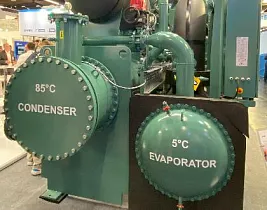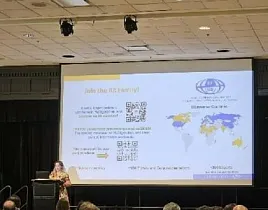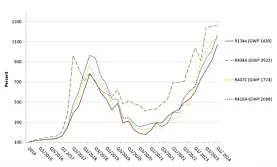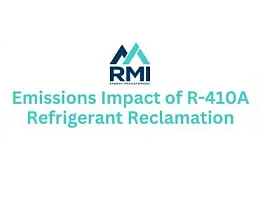At the OEWG46 in Montreal, two pivotal side events aimed to address the rising challenge of cooling needs and the ensuing greenhouse gas emissions. The events showcased the potential of Green Cooling and sustainable refrigerant management as key drivers in combating climate change.
The first session, "Market trends on future friendly ACs and heat pumps," held on Monday, 8 July, highlighted the importance of regulatory frameworks and market trends in China and Europe that are accelerating the adoption of energy-efficient air conditioners (ACs) and heat pumps. Sebastian Schnatz from the German Federal Ministry for Environment, Nature Conservation, Nuclear Safety and Consumer Protection emphasized that Green ACs alone could reduce global warming by over 0.1 degrees Celsius.
Shang Shuwen from the Chinese Ministry of Ecology and Environment discussed China's decade-long investment in propane (R290) adoption for Green ACs, driven by support from the Multilateral Fund and international agencies. "This effort aims to promote the widespread use of R290 and contributes to the achievement of global sustainability goals in the air conditioning sector," Shang said.
Marc Chasserot from ATMOsphere highlighted Europe's progress, noting that 5,000 industrial sites with hydrocarbon-based chillers and 90% of new stores adopting CO2 and propane systems are already in place. In 2022, Europe sold 225,000 propane heat pumps, driven by the EU F-Gas regulation. The session concluded with a dynamic Q&A and closing remarks by Bernhard Siegele, GIZ Proklima's programme manager.
The second event, "Accelerating the destruction of ODS waste: an open discussion on the role and lessons-learned of the Climate and Ozone Protection Alliance," was held on Thursday, 11 July, organized by GIZ Proklima and UNIDO. This event focused on sustainable refrigerant management to reduce greenhouse gas emissions and ozone-depleting substances from end-of-life cooling equipment.
For more information
click here to reach the website of the Climate and Ozone Protection Alliance (COPA).
Source









